Search
Did you mean: Horace?
Search Results
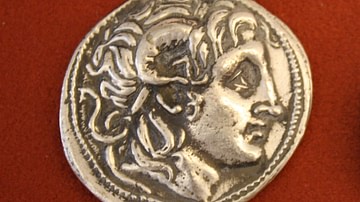
Article
Alexander the Great as a God
The age-old concept of the “divine right of kings” allowed that a country's ruler received his or her power or authority from God. However, few, if any, were delusional enough to actually believe themselves to be a god. An exception to this...
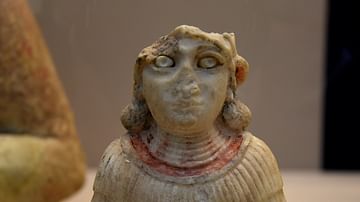
Article
Ten Great Ancient Mesopotamian Women
The lives of women in ancient Mesopotamia were regulated by a patriarchal hierarchy, but within this social structure, there were many who distinguished themselves and some who were able to assume positions traditionally held by men. Women...

Definition
Hercules
Hercules (Herakles) was a hero of Greek mythology famous for his great strength and endurance. Celebrated as an extraordinary mortal, his success in seemingly impossible labours won him an immortal place amongst the gods. As the greatest...
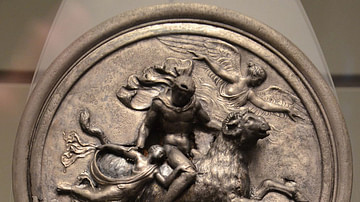
Definition
Golden Fleece
The golden fleece is the fleece of a flying, winged ram named Crius Chrysomallos, or 'Golden-fleeced Ram', in Greek mythology. It is best known from the story of Jason and the Argonauts, who were sent by Pelias, the ruler of Iolcos, to retrieve...

Definition
Periander
Periander was the second tyrant of Corinth (d. c. 587 BCE); Diogenes Laertius only mentions that he was eighty when he died, meaning that he was probably born c. 667 BCE. His father Cypselus (r. 657-627 BCE), from whom the short-lived Cypselid...
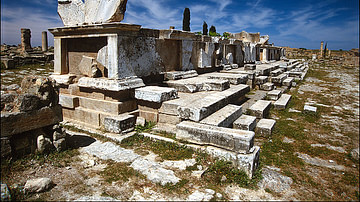
Definition
Foundation Decree of Cyrene
The Foundation Decree of Cyrene (c. 322 BCE) is a covenant between the citizens of Cyrene in North Africa in the 4th century BCE and those of their mother-state of Thera granting any who wish to become Cyrenean citizens the same rights and...
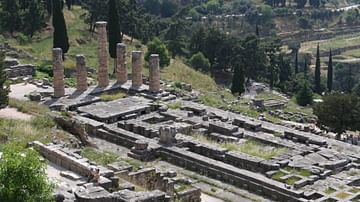
Article
The Pythia – Priestess of Ancient Delphi
The imposing archaeological site of Delphi sits over 1800 feet up on the south-western spur of Mount Parnassus, about 6 miles inland from the Corinthian Gulf, central Greece. The ancient temple complex of Delphi, which dates back at least...

Video
Oracles of Ancient Greece
Oracles in the ancient Greek world were the way in which the people of Greece could communicate with their gods. Gods couldn’t be communed with directly, so an oracle, who was often a woman, was the person that the gods spoke through, acting...

Definition
Script
Script is the written expression of a language. Cuneiform, the first script, was invented in Sumer, Mesopotamia c. 3500 BCE, hieroglyphics sometime prior to the Early Dynastic Period in Egypt (c. 3150-2613 BCE), and Sanskrit in India during...

Definition
Psyche
Psyche was the goddess of the soul in ancient Greek and Roman mythology. Born a mortal woman, her beauty rivaled that of Aphrodite (Venus) and inspired the love of Aphrodite's son, Eros, god of desire. After completing a series of seemingly...